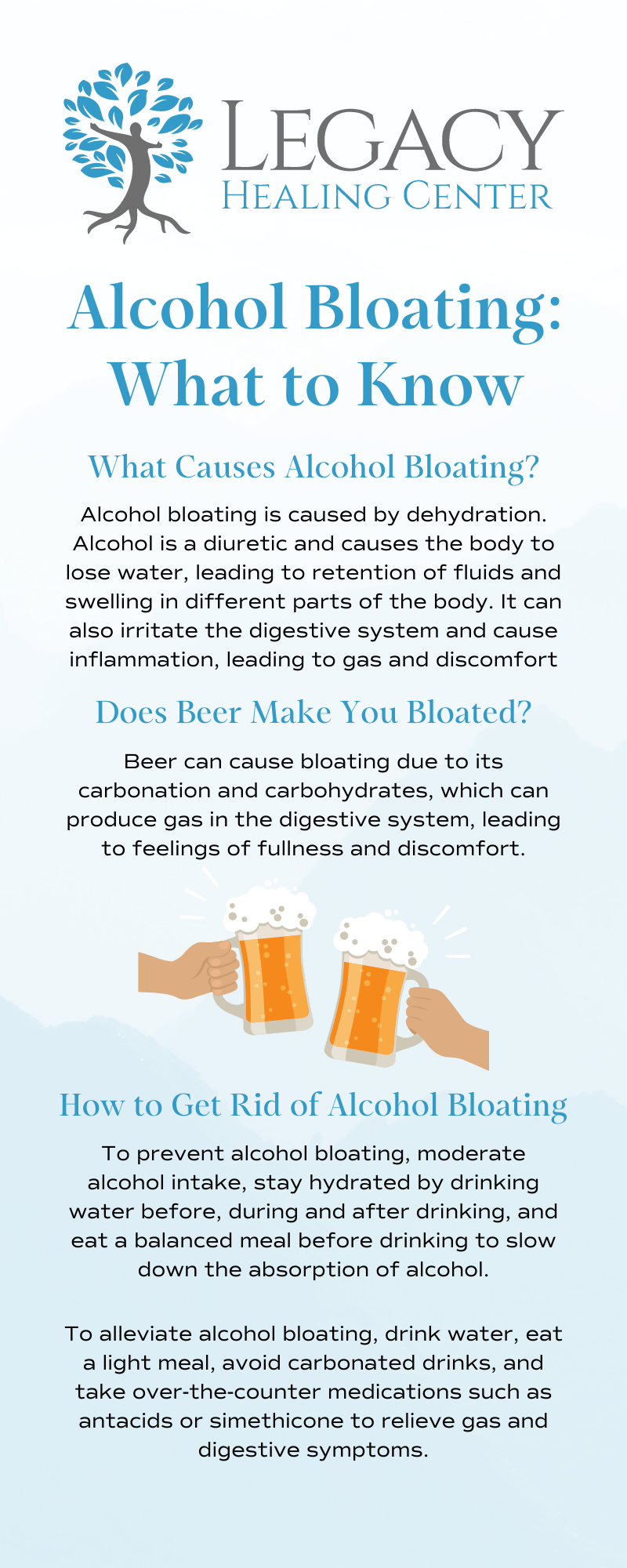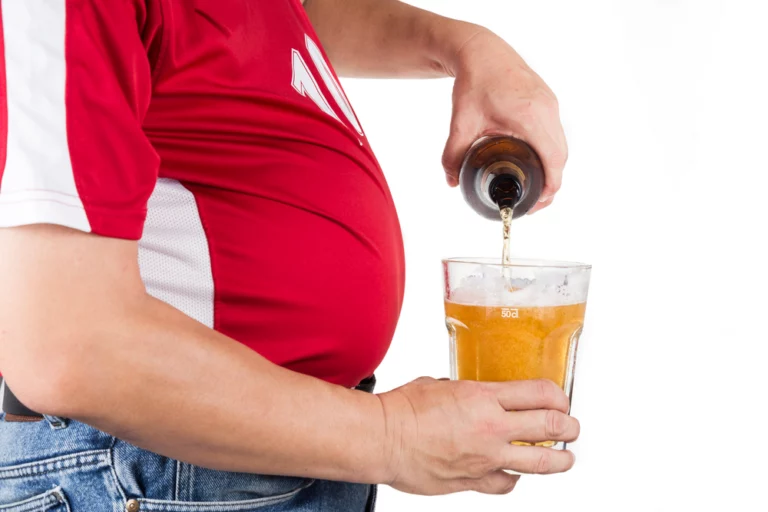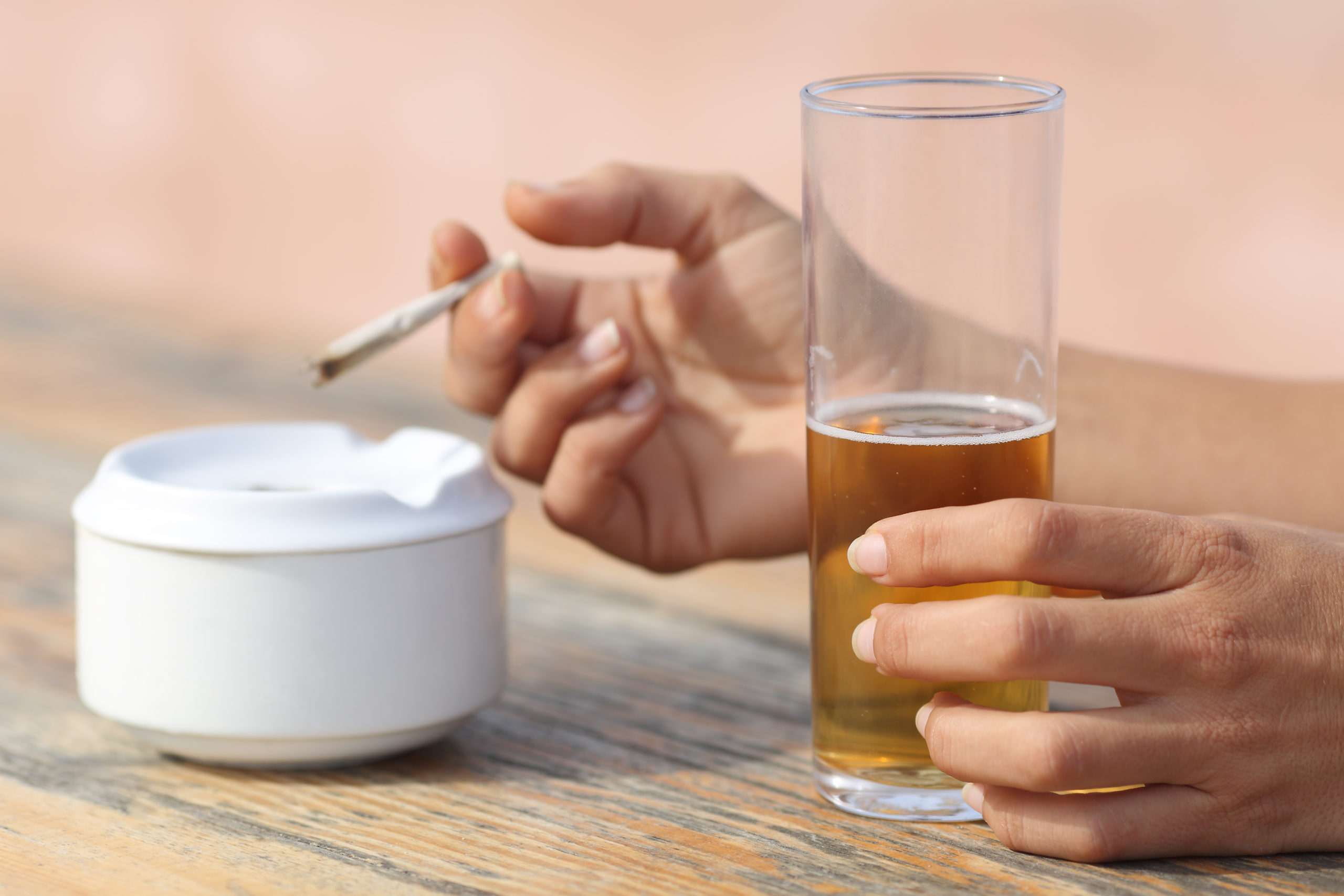Alcohol Bloating and Beer Belly: What to Know
What Is Alcohol Bloating or Beer Belly?
Alcohol bloating is a common side effect of drinking alcohol. It occurs when the body retains excess water due to the dehydrating effects of alcohol, leading to a swollen or puffy appearance in the face, stomach, or limbs. Bloating from alcohol can be uncomfortable and unpleasant, but it can also be a warning sign of more serious health issues. Our rehabilitation center can provide you with the support and help needed to better understand alcohol bloating and addiction to alcohol.
Why Does Alcohol Cause Bloating?
The primary cause of alcohol bloating is dehydration. Alcohol is a diuretic, which means it increases urine production and causes the body to lose water. This loss of fluids can lead to dehydration and cause the body to retain water in an attempt to rehydrate itself. This can result in swelling or puffiness in various parts of the body.
In addition to dehydration from alcohol, drinking can also irritate the digestive system and cause inflammation in the stomach and intestines. In addition to bloating, this can also lead to gas, and discomfort, especially if you consume large amounts of alcohol or have an underlying digestive condition such as irritable bowel syndrome (IBS).
Does Beer Make You Bloated?
Beer can cause bloating in some people due to its carbonation and high carbohydrate content. Additionally, the fermentation process in beer can produce gas in the digestive system, leading to feelings of fullness and discomfort.
How to Get Rid of Alcohol Bloating
The best way to prevent alcohol bloating is to moderate your alcohol consumption and stay hydrated. Drinking plenty of water before, during, and after drinking alcohol can help counteract the dehydrating effects of alcohol and prevent fluid retention. Eating a balanced meal before drinking can also help slow down the absorption of alcohol and reduce the risk of bloating and other digestive issues.
However, if you do experience alcohol bloating, there are several steps you can take to alleviate the symptoms. Drinking plenty of water, eating a light and balanced meal, and avoiding carbonated drinks can help reduce bloating and discomfort. Over-the-counter medications such as antacids or simethicone can also help relieve gas and other digestive symptoms.
If you are struggling with alcohol addiction or dependence, seeking professional help is the best way to
overcome the negative effects of alcohol on your health and well-being. At Legacy Healing Center, we offer comprehensive alcohol addiction treatment programs that can help you detox from alcohol, manage withdrawal symptoms, and develop the skills and strategies you need to achieve lasting sobriety.
Legacy Healing Center Is Here to Help
Alcohol bloating can be an uncomfortable and unpleasant side effect of drinking, but it can also indicate a more serious underlying issue. By understanding the causes and symptoms of alcohol bloating and taking steps to prevent and treat it, you can protect your health and well-being and avoid the negative effects of alcohol addiction. Additionally, if you are struggling with alcohol abuse or dependence, seeking professional help is the first step towards achieving lasting sobriety and reclaiming your life.
Our Legacy Healing detox centers have the resources necessary to help those struggling with alcoholism navigate withdrawals safely and comfortably. Once this is concluded, patients can expect to be placed in one of our numerous types of addiction treatment programs. From here, they will have access to numerous therapies and programs that aid in healing from the past and preparing for the future.
To take the first steps of healing from alcohol addiction, call Legacy Healing Center today at 888-534-2295 and speak with one of our intake specialists about which treatment option is right for you.
Related Reading





